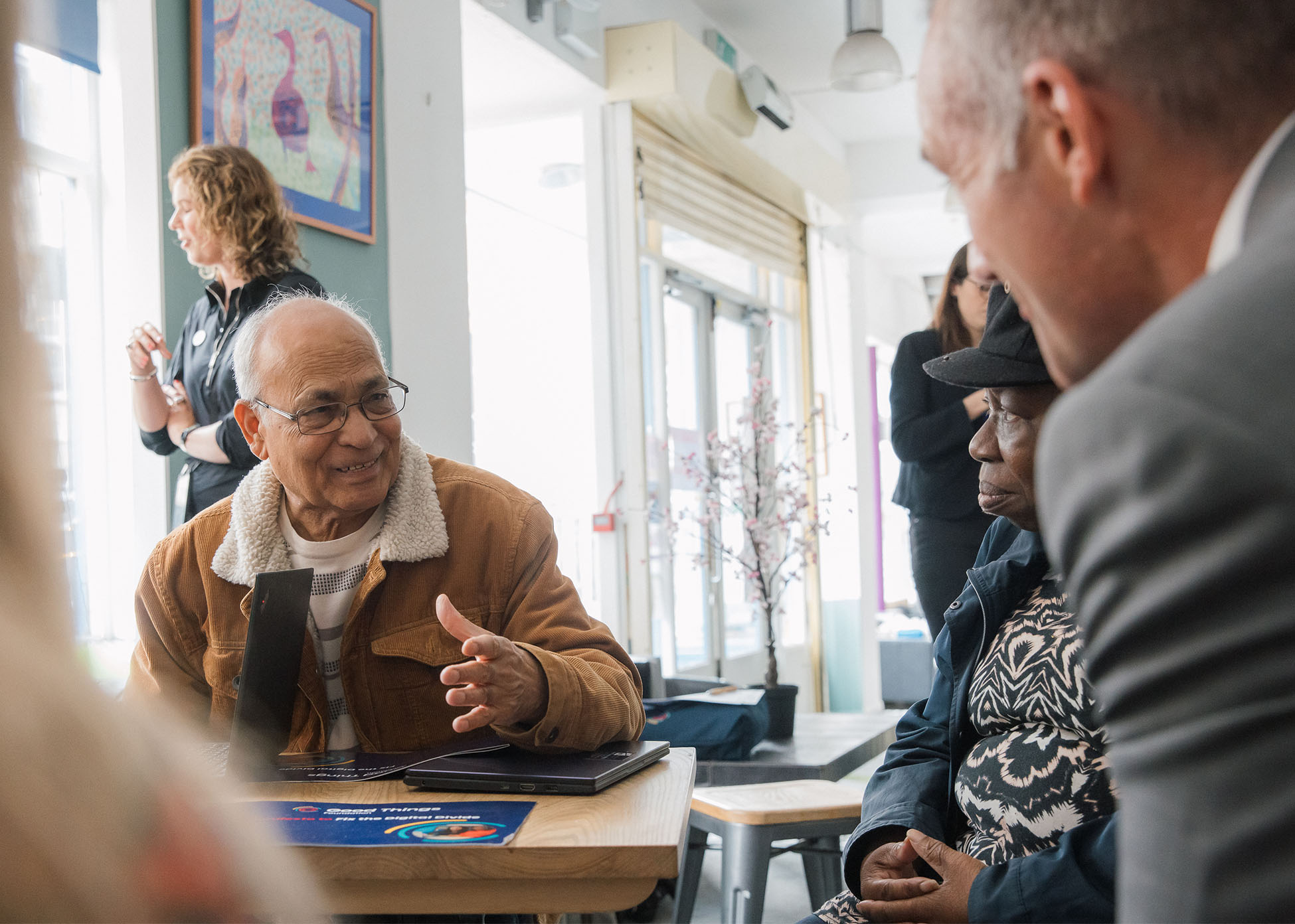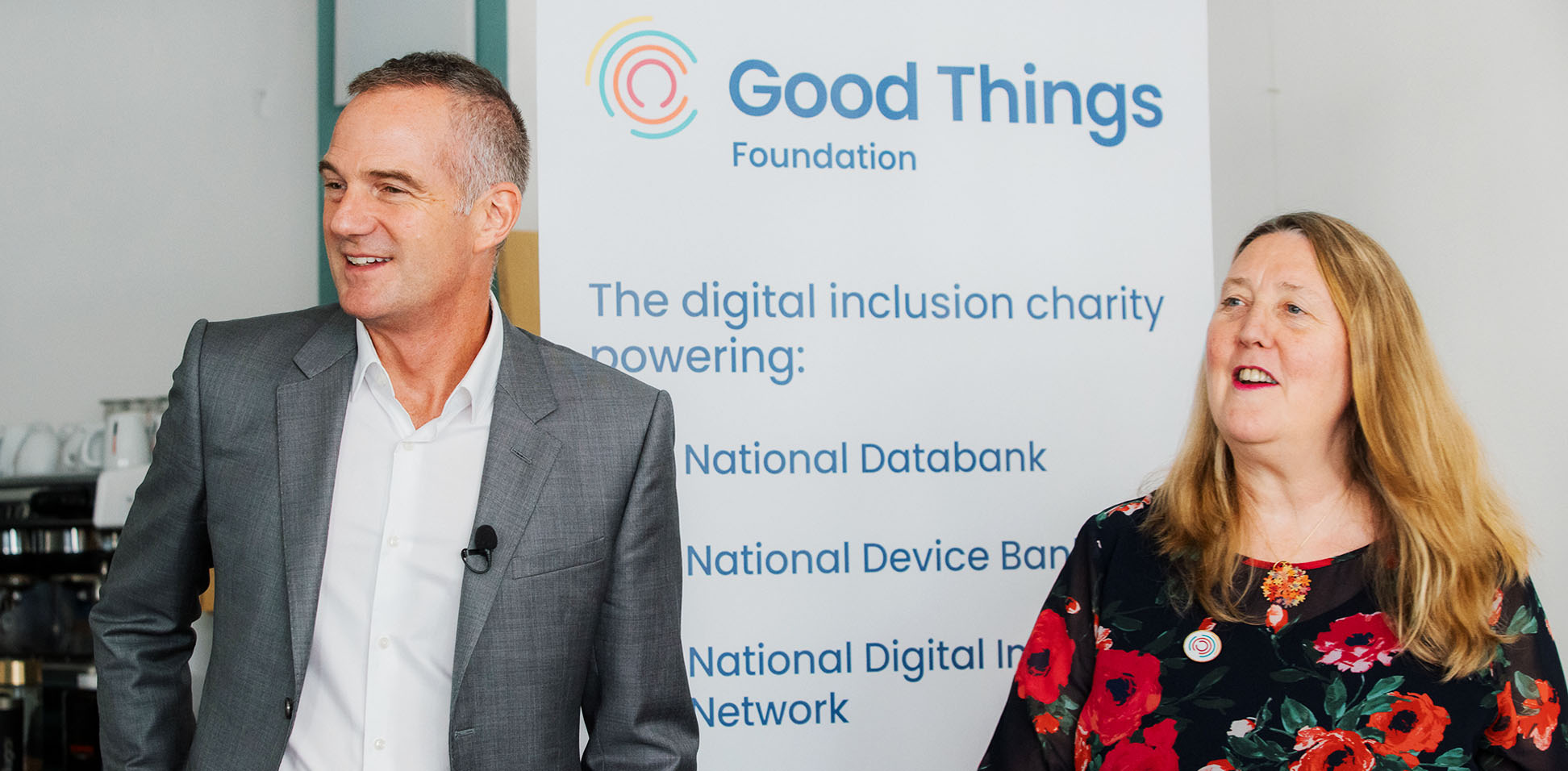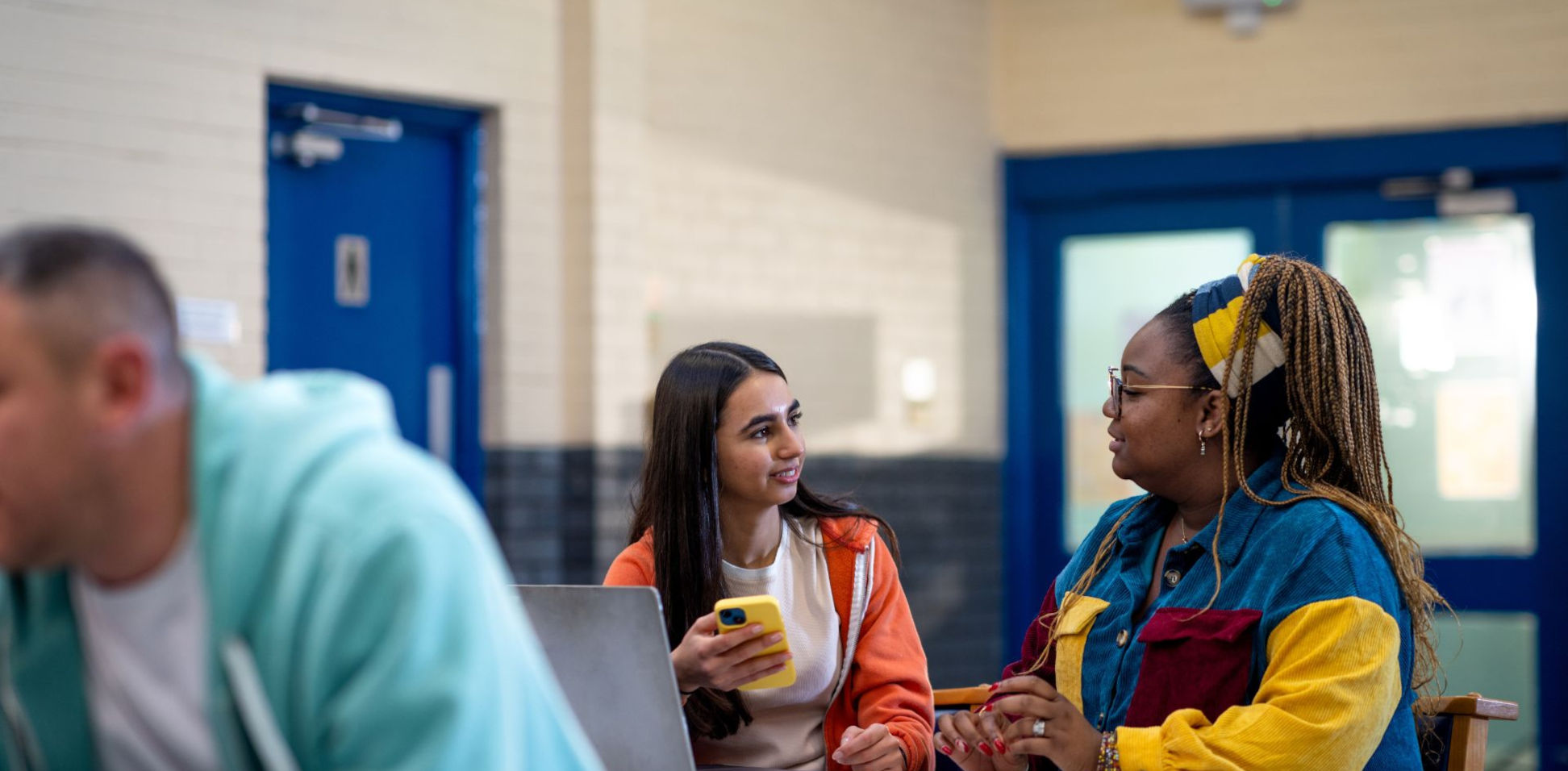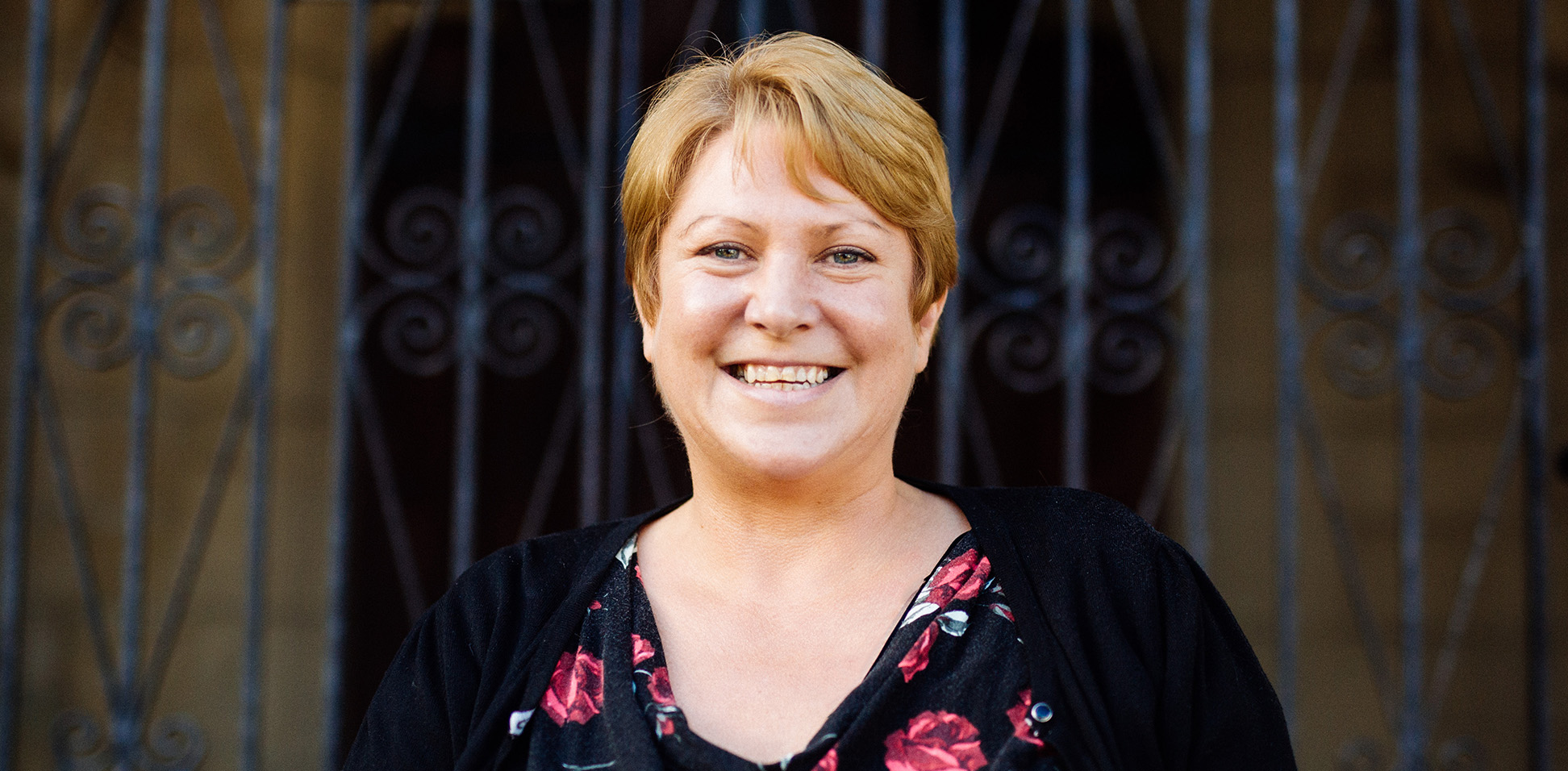Labour party supports digital inclusion
We've been calling on the current and future Governments to take digital exclusion seriously. The Labour party has now pledged support to digital inclusion, with plans to collaborate with charities like Good Things Foundation.
The UK Labour party pledge their support to digital inclusion
At London Tech Week, Peter Kyle, Shadow Secretary of State for Science, Innovation and Technology announced:
“A Labour government will lead by example by looking to donate appropriate laptops, tablets and phones to digital inclusion schemes, when they are no longer used by departments. Once they are cleaned up and secured they can be reused by people who need them instead of being put in a landfill.”
After his speech, Labour’s Peter Kyle and our Chief Executive, Helen Milner OBE visited ClearCommunityWeb, a digital inclusion hub that’s part of our National Digital Inclusion Network in South London.
At the hub, they spoke with people who are digitally excluded, and those that have benefited from support, including people like Minaj whose mental health was so bad she barely left the house. Minaj’s life turned around when she saw a poster to gain digital skills in her doctors. She then visited a digital inclusion hub in Manchester, quickly gaining basic digital skills that enabled her to order her prescriptions using the NHS app and manage her money better by shopping online. Now volunteering, her mental health is in a much better place and she has a community of support around her. She said, “My son is so proud of me, [getting online] is the best thing I’ve ever done. I think I would probably be dead now if I hadn’t done it.”
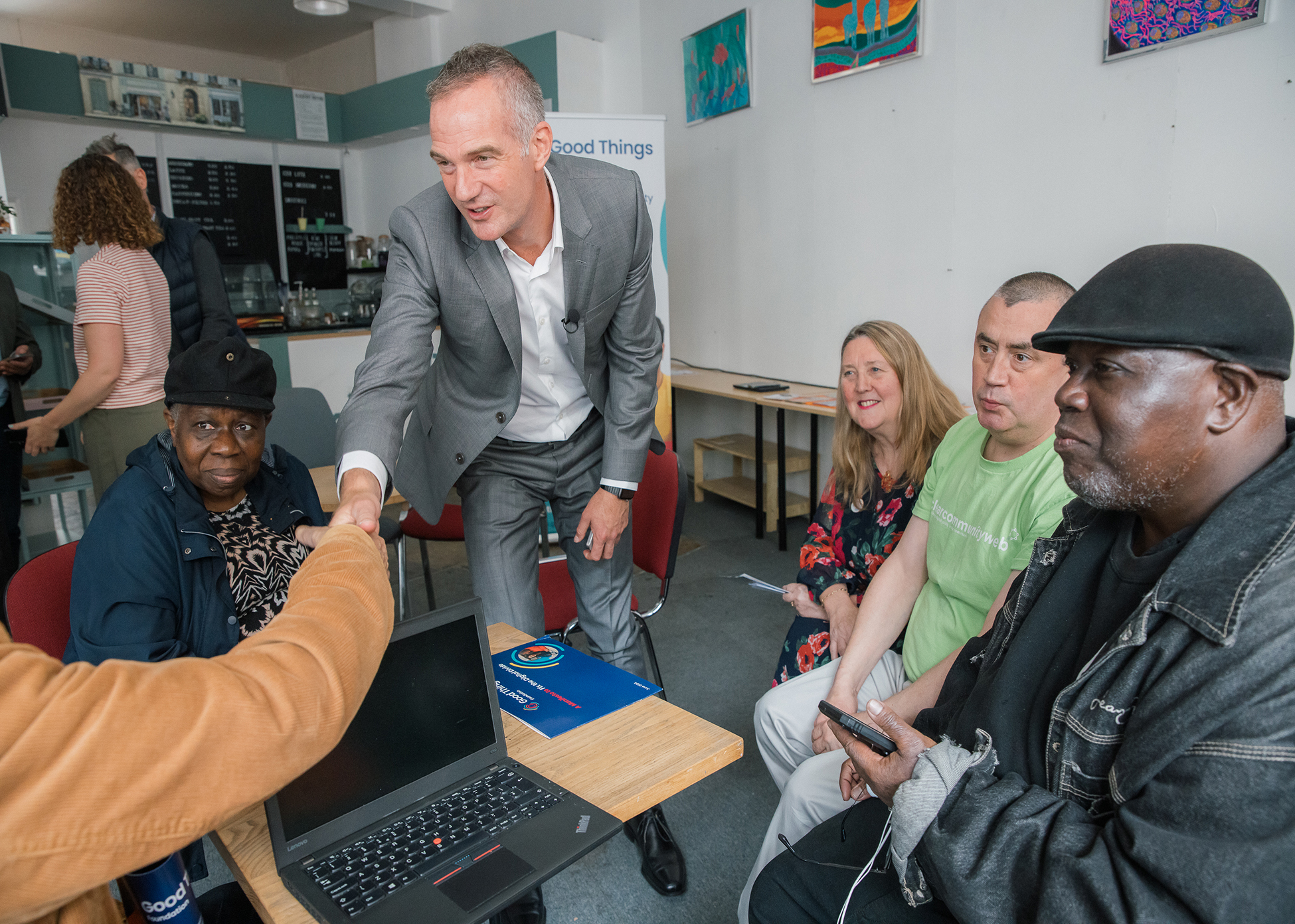
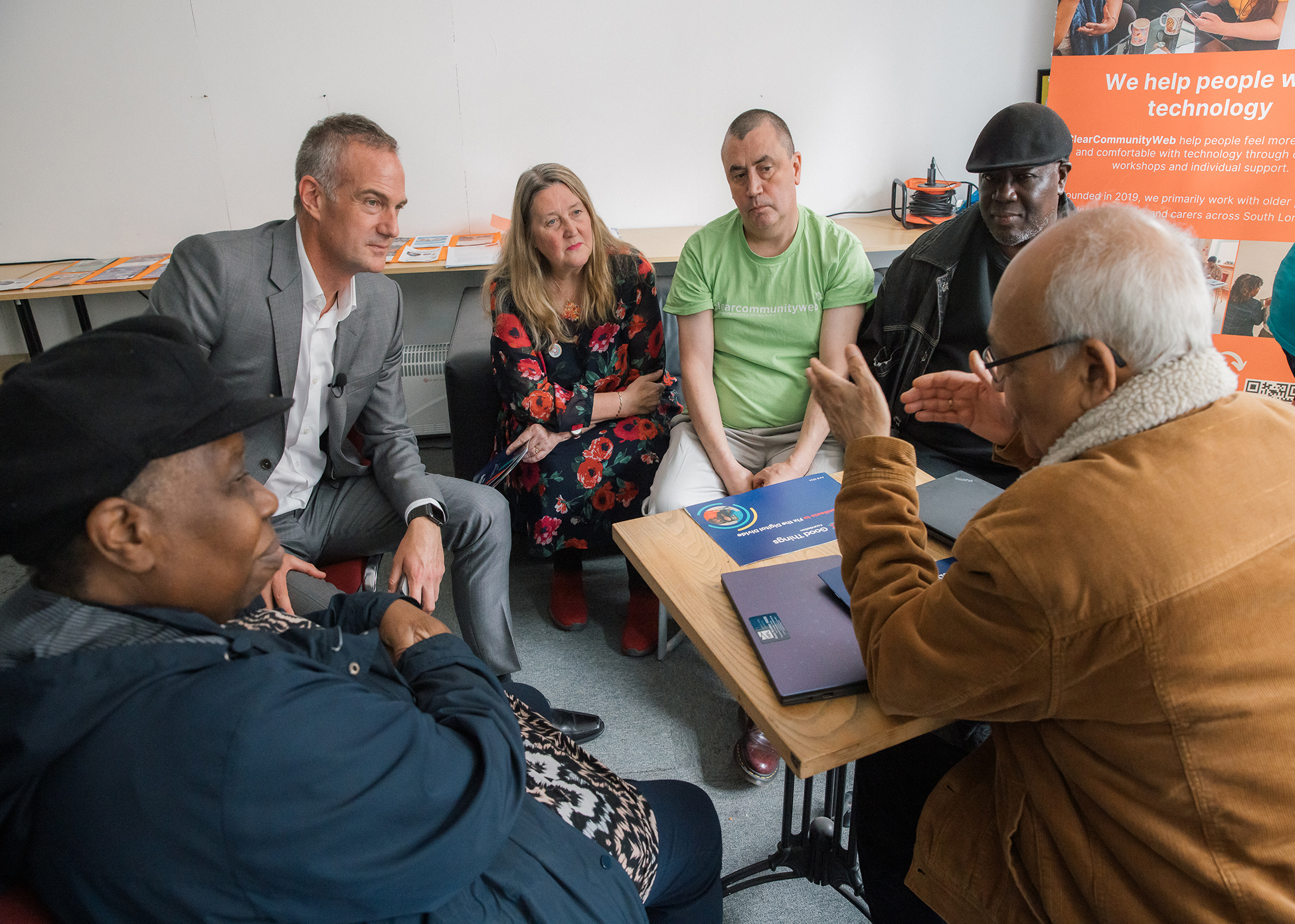
The scale of digital exclusion
In the UK today, 8.5 million people lack basic digital skills and are unable to carry out simple tasks online, like setting up an email address or connecting with loved ones virtually.
Despite availability of good value products and social tariffs for mobile and broadband, Ofcom estimates that 28% of households have difficulty affording a communications service. Around 1.5 million don’t have a smartphone, tablet, or a laptop.
People are excluded because they lack basic digital skills and confidence, and low incomes deny them affordable access. They are cut off from jobs, education, financial savings, online public services, community and much more that most people take for granted.
We’ve long been calling on the current and future Governments to act on digital exclusion, providing evidence for cross-party policy consultations and expertise to policy makers, civil servants and politicians. Last year we contributed to a House of Lords report exploring digital exclusion and the cost of living crisis, which cited our policy aims and called for immediate and decisive action.
Collaborating to fix the digital divide
Our Group CEO Helen Milner OBE said:
“We are delighted that a major UK political party is stepping up to fix the digital divide.
We have been calling on the current and future Governments to take digital exclusion seriously, and the time to act is now. We are delighted to see that a mainstream party is pledging to support people with the very basic and essential digital skills and devices they need to thrive in today’s AI age.”
Peter Kyle, Shadow Secretary of State for Science, Innovation and Technology and Labour candidate for Hove and Portslade, said at London Tech Week:
“Upskilling people’s digital literacy will be key to growing the economy. The route to greater productivity, increased participation and improved access to public services relies on every citizen being equipped with the confidence, devices and skills to use the technology.
The government’s own estimates calculate that digital skills shortages are costing the UK £63 billion a year.”
The Labour Party has pledged to work with charities like ourselves to empower citizens to gain basic digital skills and to reuse unused civil service technology by refurbishing it and ensuring it goes to those most in need.
